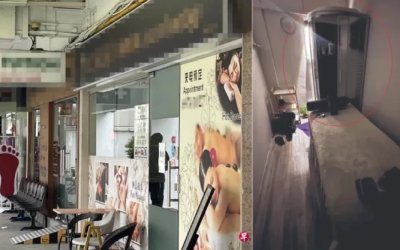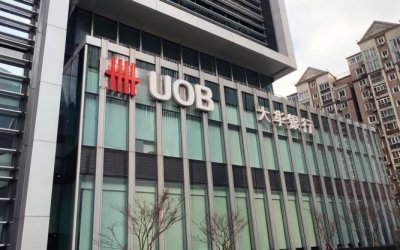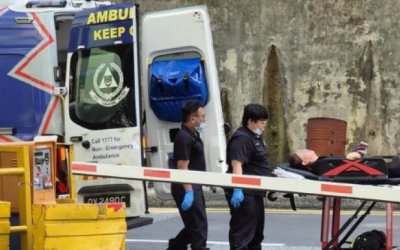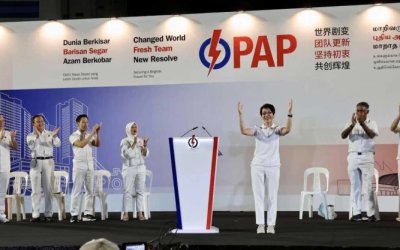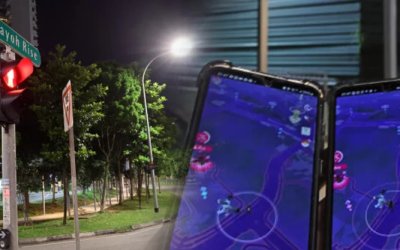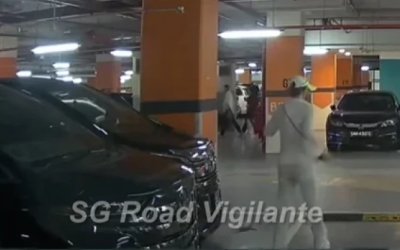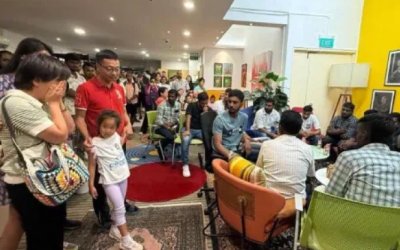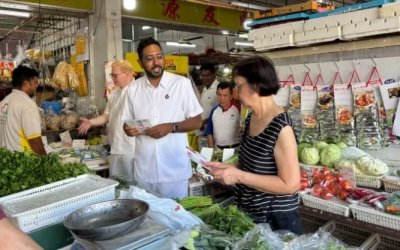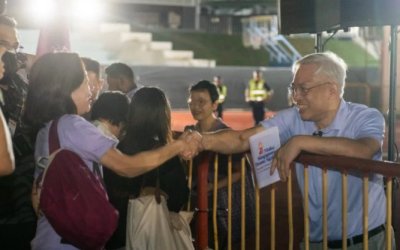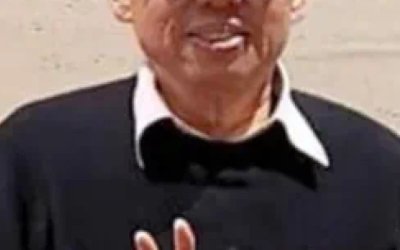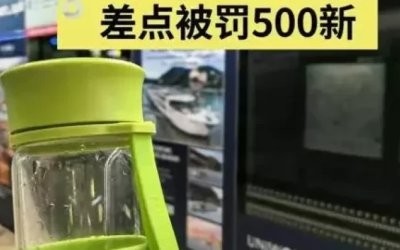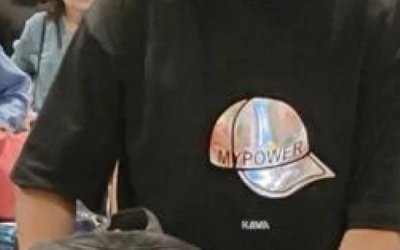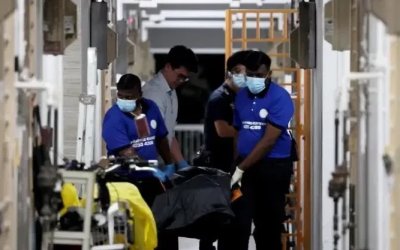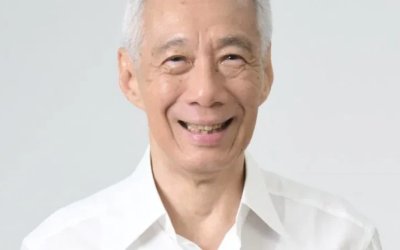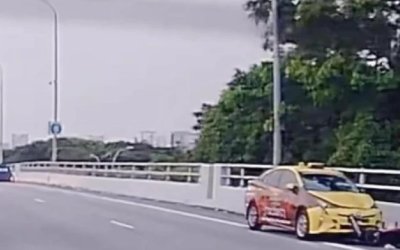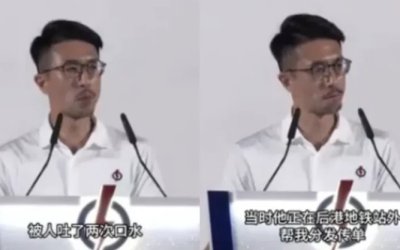我只想為這位議員提供一個非常清晰的視角:在2024年第三季度,英偉達在新加坡的季度收入比例為22%。這反映了英偉達客戶收到帳單的地點,並不意味著帳單是在這裡運出的。因此,這與英偉達及其客戶交付貨物的實際地點無關。
請允許我與各位議員廣泛分享一下。全球實體的通常做法是在其中心集中開具採購貨物和服務的帳單,但這與產品的運輸地點是分開的。迄今為止,根據我們的核查和手頭掌握的數據顯示,在該季度,英偉達整體收入中只有不到 1%是實際運往新加坡的。在英偉達 向新加坡商業實體收取的其餘收入中,並不包括運往新加坡的實際貨物。
議長:有請李堅輝議員,最後一個問題。
李堅輝(官委議員): 我感謝部長非常全面的答覆。部長提到,根據美國人工智慧晶片出口管制,新加坡已被列為第二級國家。我向部長提出的補充問題是:被列為第二級國家對經濟有什麼影響,這種分類是否會影響新加坡吸引人工智慧晶片投資、高端半導體研發的能力,甚至阻礙我們成為人工智慧發展中心的雄心?
陳詩龍醫生(人力部長兼貿工部第二部長):感謝李先生的補充提問。正如我尊敬的同事維文部長所分享的,我們是150個國家中基礎較廣的國家。我認為我們是很好的夥伴。
我在剛才的回答中也提到,美國的人工智慧擴散規則尚未由現任政府最終確定;維文部長也提到了這一事實,即拜登政府在其執政的最後幾天發布了這一規則。實際上,它是在 2025 年 1 月 13 日發布的,也就是一個多月前。徵求意見期為 120 天,將於 2025 年 5 月 13 日結束。新政府尚未就其對該規則的政策或立場發表評論。因此,我們是處於第二級地位的 150 個國家之一。
雖然美國將 18 個國家歸為第一級,但並沒有分享分級分類的具體要求,也沒有說明一個國家從第二級重新歸為第一級需要滿足哪些要求。
獲得人工智慧計算能力對於我們實現國家人工智慧目標非常重要。正如我們的國家人工智慧戰略 2.0 所闡明的,我們正在採取多管齊下的戰略,使產業界、學術界和政府能夠開展高價值的人工智慧活動。除了確保獲得先進的人工智慧硬體和計算能力,我們還將重點關注人才和基礎設施的發展。我們將繼續支持在新加坡運營的公司獲得先進的晶片,包括符合人工智慧擴散規則的晶片。
目前,我們的行業參與者對先進晶片的需求大多來自總部位於美國的雲超級計算機。它們是 Meta、亞馬遜、谷歌等。我們將與他們合作,申請成為通用驗證最終用戶,允許他們向新加坡轉移一定數量的先進晶片,以滿足他們的創新和業務需求。
對於有大量人工智慧計算需求的本地公司,他們可以申請成為國家驗證最終用戶。最終用戶分為兩級:通用驗證最終用戶和國家驗證最終用戶。他們可以申請成為國家驗證最終用戶,以獲得先進的人工智慧晶片,我們將支持本地公司的申請。
通用和國家驗證最終用戶進口的晶片將不計入第二級國家的國家上限。
我們正在與新加坡的行業參與者進行磋商,以收集有關規則草案對其業務活動的潛在影響的反饋意見。此外,正如我較早前所說,我們也正與美國方面接觸,以處理他們所關注的問題,並更好地了解他們對人工智慧擴散規則的處理方法。
問題 3-6 的說明:
1 項質詢其後撤回:問副總理兼貿工部長:(a) 有何措施確保以新加坡為基地的實體遵守美國的出口管制,防止未經授權再出口受管制的技術;(b) 新加坡如何與國際夥伴,特別是美國合作,加強遵守和執行美國的出口管制,同時促進商業信心,保持其作為值得信賴的全球貿易樞紐的地位。

以下是英文質詢內容:
Mr Yip Hon Weng asked the Deputy Prime Minister and Minister for Trade and Industry (a) how does the Ministry ensure that the ease of doing business in Singapore is not exploited by companies seeking to bypass US trade restrictions; and (b) whether the Ministry can provide an update on its assessment of the effects of the US chips export control rules on our semi-conductor industry and the broader economy.
Ms Joan Pereira asked the Deputy Prime Minister and Minister for Trade and Industry whether there are measures in place to ensure that entities operating in Singapore are compliant with export controls and international laws in order to protect Singapore’s status as a well-respected international business hub.
Assoc Prof Jamus Jerome Lim asked the Deputy Prime Minister and Minister for Trade and Industry (a) whether the Ministry is aware that Singapore will be placed under the new US AI export controls' Tier Two status; (b) whether it is a specific foreign policy objective of this Government to secure (i) the National Validated End-User status and (ii) Tier One reclassification under these controls; and (c) what specific technical and regulatory enhancements, if any, have been communicated by US counterparts as prerequisites for such status changes.
Assoc Prof Jamus Jerome Lim asked the Deputy Prime Minister and Minister for Trade and Industry in light of how US agencies have flagged Singapore as a hub for illicit chip transshipments to blacklisted Chinese AI firms (a) whether the Government is able to (i) disclose the foreign policy rationales behind its regulatory stance with regard to re-exports of such chips since 2023 and (ii) detail any or all inter-agency decisions that led to this situation; and (b) how does the Government intend to rectify any damage to Singapore’s credibility and ties with the US arising from such reports.
The Second Minister for Trade and Industry (Dr Tan See Leng): Mr Speaker, may I have your permission to answer oral Question Nos 3 to 6 on today's Order Paper, filed by Members Mr Yip Hon Weng, Ms Joan Pereira and Assoc Prof Jamus Lim, together, please?
Mr Speaker: Please go ahead.
Dr Tan See Leng: These pertain to questions over the United States (US) export controls and Singapore's approach to such measures. My response today will also cover a similar Parliamentary Question that has been filed by Mr Mark Lee1, that has been scheduled for a subsequent Sitting.
Singapore is a stable, trusted, reliable and well-connected international business hub. Our economic competitiveness is based on our commitment to the rule of law, zero tolerance for corruption, transparent regulations and an open inclusive business environment. We have painstakingly built up this reputation over time. That is why we take firm and decisive action against individuals and companies that violate our laws. It is the foundation of our competitiveness.
Questions have been raised about Nvidia chips that were subject to US export controls. We are scrutinising this issue carefully and will continue to do so. So far, our checks indicate that physical delivery of products sold by Nvidia to Singapore represent less than 1% of Nvidia's overall revenue. These are mainly deployed in Singapore for major enterprises and the Singapore Government. We understand that the remainder of Nvidia's revenue billed to business entities in Singapore did not involve physical shipments into Singapore.
If a company in Singapore is engaged in deceptive or dishonest practices to evade export controls that it is subject to, we will investigate and we will take the appropriate action in accordance with Singapore laws. It is in our national interest to secure access to leading edge technology and to maintain the integrity of our business environment.
Within Singapore, the transfer and brokering of strategic goods and technology is governed by the Strategic Goods (Control) Act. This is a robust framework that is aligned with major multilateral export control regimes, including those imposed by the United Nations Security Council.
Outside of these multilateral regimes, countries sometimes impose unilateral export controls on specific items. The US' export controls on advanced semi-conductor chips are one example.
Under these rules, the US expects companies to ensure their business transactions adhere to their requirements, including doing the required Know Your Customer (KYC) on the buyers of the advanced semi-conductor chips. While we currently do not have legal obligations to enforce the unilateral export controls of other countries, we expect all companies operating in Singapore to take into account such regulations if they apply to their international business activities. Their international business activities should be conducted transparently.
